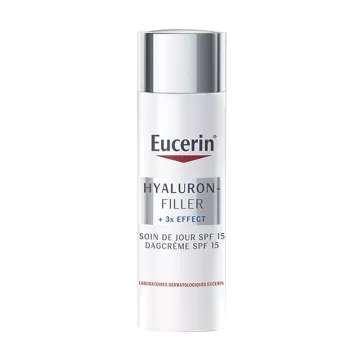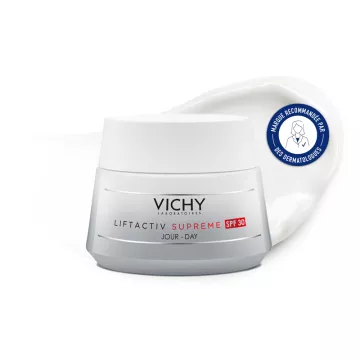


How important is day care?
Day care is crucial for protecting and nourishing the skin throughout the day. It helps maintain hydration, protects against external aggressors such as UV rays and pollution, and can prevent premature aging. Regular use of a day care product helps maintain healthy, radiant, well-protected skin.
What are the key ingredients to look for in a day care product?
When choosing a day care product, it's important to look for active ingredients that deliver specific benefits:
How do I apply a day care product correctly?
To maximize the benefits of a day care product, follow these steps:
What's the difference between a day cream and a night cream?
A day cream is formulated to protect and moisturize the skin during the day, often with ingredients such as antioxidants and sunscreens. A night cream, on the other hand, is designed to repair and regenerate the skin during sleep, with nourishing and restorative ingredients such as retinoids and peptides.
Can I use the same skin care product for day and night?
We recommend using specific products for day and night. A day care product generally contains protective ingredients such as sun filters, while a night cream is enriched with regenerating active ingredients that can make the skin sensitive to daylight. Using a specific skin care product for each moment of the day guarantees greater efficacy and skin protection.
Are day care products suitable for all skin types?
Yes, there are day care products for all skin types:
At what age should I start using a day care product?
It's advisable to start using a day care product as early as adolescence, as soon as the skin begins to show signs of specific needs such as hydration or protection against UV rays. However, the use of age-appropriate skincare is essential to meet the skin's evolving needs.
Can day care replace sunscreen?
A day care product with a built-in sun protection factor (SPF) can provide adequate protection for limited sun exposure. However, for prolonged or intense exposure, it is recommended to apply an additional sunscreen to ensure optimal protection.
How to choose the best day care?
To choose the best day care, consider your skin's specific needs:
What are the benefits of natural day care?
Natural day care offers a number of advantages:
Can a day care product be used under make-up?
Yes, a day care product can be used under make-up. In fact, it provides an excellent base for preparing the skin, ensuring more even application and better make-up hold. For optimum effectiveness, choose a light, non-comedogenic day care product that absorbs quickly and leaves no greasy residue.
What is the recommended frequency of application for a day care product?
We recommend applying a day care product every morning after cleansing and toning your skin. Daily application ensures constant hydration and ongoing protection against external aggressors. If you spend a lot of time outdoors, you may need to reapply a product with SPF every two hours.
Are day care products effective against skin ageing?
Yes, day care products can be very effective in combating skin ageing. Look for products containing antioxidants (such as vitamin C and vitamin E), peptides and hyaluronic acids. These ingredients help neutralize free radicals, stimulate collagen production and maintain hydration, reducing the appearance of fine lines and wrinkles.
What are the benefits of day care products containing sun filters?
Day care products with sun filters offer essential protection against ultraviolet (UV) rays, which are responsible for hyperpigmentation, premature aging and certain forms of skin cancer. Using a skin care product with an SPF suited to your skin type and daily sun exposure helps prevent this damage and maintain healthy, youthful skin.
Is day care necessary even in winter?
Yes, it's crucial to use a day care product even in winter. Winter conditions can dehydrate the skin, and UV rays can still cause damage, even on cloudy days. A day care product rich in moisturizers and UV protectors helps maintain the integrity of the skin barrier and protect against environmental aggressors, such as cold and wind.